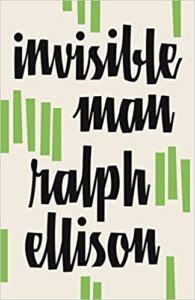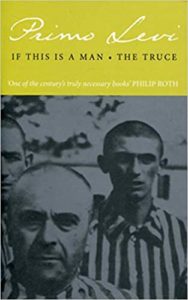Can you think of a book you’ve read that could describe your experience in the world to someone else? That question is what motivated this episode, in which host Russ Roberts welcomed back Dwayne Betts, poet, author, and founder of Freedom Reads. To prepare for this conversation, Betts and Roberts each asked the other to read such a book. Betts asked Roberts to read Ralph Ellison’s Invisible Man. Roberts asked Betts to read Primo Levi’s If This is a Man.

Having each read the other’s suggestion, the two gather to discuss. Can either ever really understand what it might be like to walk in the other’s shoes? Perhaps this episode prompted you to read one or both of these titles. If so, how were you affected?
Here are some additional prompts for you to consider. As always, we love to hear from you.
1- In discussing Ellison, Betts says, “… I think Ellison is saying something so radically different about race in America than people first think.” What does he mean? How is the main character “invisible,” and to whom? If his invisibility is not a product of race, where does it come from?
2- How do transformative experiences affect people? (Betts reference this previous episode with L.A. Paul as well as Levi’s experience in Auschwitz.) How do the transformative experiences of others which one reads about affect the reader? Just how similar can these two experiences be, and what makes it more likely that the two versions- lived versus read- converge?
3- Betts says of Levi’s book, “…it’s a truly tragic book. But, when I think about it, I think about, like, hope and beauty and poetry.” How can a writer take all that horror and turn it into something beautiful? What do you think prompts such writers’ choice to choose beauty over horror?

4- Betts suggests that the big question for Ellison is, what’s the best way to make change? He also opines that he was dismayed in reading the book for the second time that not that much had really changed in American society. To what extent does this suggest that “idea books,” as he calls them, can have little impact on social change?
5- Both Roberts and Betts shared their thoughts on the experience of reading the books together. Have you had any similar experiences? What exactly do you think it was about the experience that seems to have made it so profound for both Roberts and Betts?


Comments are closed.